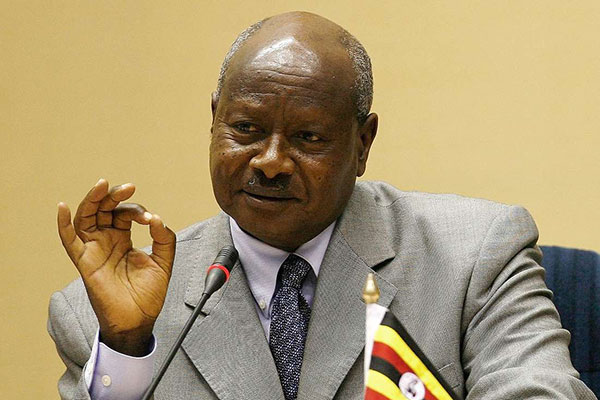Ugandan President Yoweri Museveni has recently signed into law a highly contentious piece of legislation that imposes severe penalties on LGBTQ individuals, including the possibility of death sentences and life imprisonment. The move has sparked widespread criticism both domestically and internationally, with concerns raised about the potential negative impact on foreign aid and investment in the East African nation. In response to this development, the United States has announced its intention to implement visa restrictions against Ugandan officials.
The newly enacted legislation represents a significant setback for the LGBTQ community in Uganda, as well as for human rights advocates worldwide. Despite ongoing efforts to promote inclusivity and respect for diversity, the law reinforces discriminatory practices and poses a serious threat to the fundamental rights and well-being of LGBTQ individuals.
International condemnation has been swift, with numerous countries, organisations, and human rights activists expressing deep concern over the harsh penalties imposed by the law. Critics argue that such legislation perpetuates discrimination, fosters intolerance, and violates basic human rights principles. Many fear that the implementation of these draconian measures may lead to increased persecution, social stigma, and violence against LGBTQ individuals in Uganda.
Beyond the moral implications, there are significant implications for Uganda’s relationship with the international community. The imposition of harsh penalties on LGBTQ individuals raises concerns about the potential negative impact on foreign aid and investment. Several countries have voiced their disapproval, signalling potential consequences for diplomatic ties and economic partnerships. The United States, in particular, has taken a firm stance by announcing visa restrictions against Ugandan officials involved in the enactment and enforcement of the discriminatory legislation.
The decision to impose visa restrictions serves as a clear message that the United States stands firmly against such regressive policies and advocates for the protection of human rights. It also highlights the potential consequences that Uganda may face in terms of strained diplomatic relations and reduced international cooperation. Other nations and organisations may follow suit, further isolating Uganda on the global stage.
Domestically, the LGBTQ community and human rights organisations within Uganda are mobilising to challenge the legislation through legal means and advocacy efforts. They seek to protect the rights of LGBTQ individuals, foster understanding and acceptance, and promote a more inclusive society. Local and international activists are working together to raise awareness about the harmful effects of the law and push for its repeal.
The path forward for Uganda remains uncertain, as the government’s steadfast commitment to the new legislation contrasts with the growing international pressure to promote inclusivity and respect for human rights. The clash between opposing views on LGBTQ rights and the potential ramifications for Uganda’s standing in the global community sets the stage for a complex and challenging dialogue.
As the controversy surrounding the new legislation unfolds, the plight of LGBTQ individuals in Uganda remains a critical issue that demands attention, dialogue, and action. The international community continues to urge Uganda to reconsider its stance, encouraging the government to uphold human rights principles and protect the dignity and well-being of all its citizens, irrespective of their sexual orientation or gender identity.

